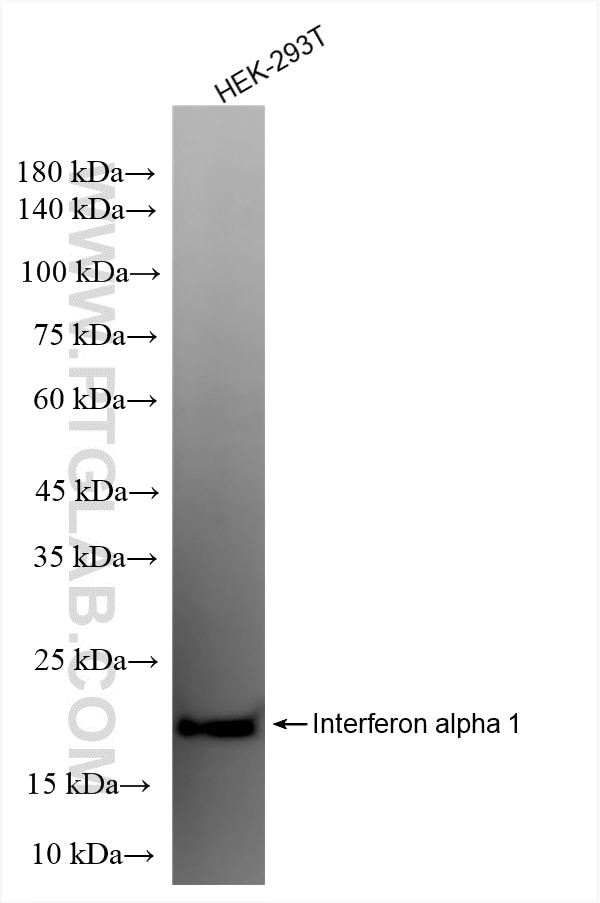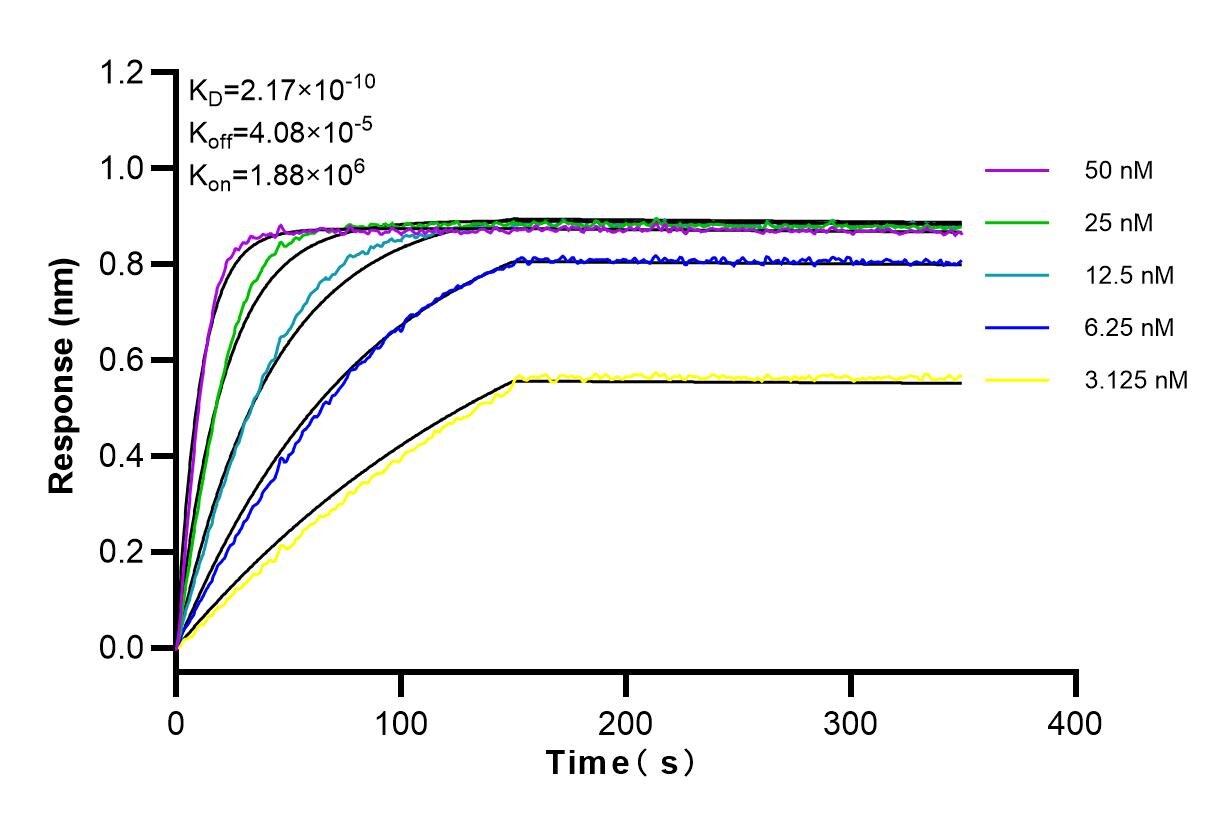Tested Applications
| Positive WB detected in | HEK-293T cells |
Recommended dilution
| Application | Dilution |
|---|---|
| Western Blot (WB) | WB : 1:1000-1:4000 |
| It is recommended that this reagent should be titrated in each testing system to obtain optimal results. | |
| Sample-dependent, Check data in validation data gallery. | |
Product Information
83684-6-RR targets Interferon alpha 1/IFNA1 in WB, ELISA applications and shows reactivity with human samples.
| Tested Reactivity | human |
| Host / Isotype | Rabbit / IgG |
| Class | Recombinant |
| Type | Antibody |
| Immunogen |
Fusion Protein Predict reactive species |
| Full Name | interferon, alpha 13 |
| Calculated Molecular Weight | 22kDa |
| Observed Molecular Weight | 20 kDa |
| GenBank Accession Number | NM_024013.3 |
| Gene Symbol | IFNA13 |
| Gene ID (NCBI) | 3447 |
| RRID | AB_3671285 |
| Conjugate | Unconjugated |
| Form | Liquid |
| Purification Method | Protein A purfication |
| UNIPROT ID | P01562 |
| Storage Buffer | PBS with 0.02% sodium azide and 50% glycerol, pH 7.3. |
| Storage Conditions | Store at -20°C. Stable for one year after shipment. Aliquoting is unnecessary for -20oC storage. 20ul sizes contain 0.1% BSA. |
Background Information
IFNA1, also known as IFNA13, is predicted to enable cytokine activity and type I interferon receptor binding activity. and is predicted to be involved in several processes, including B cell activation; lymphocyte activation involved in immune response; and positive regulation of peptidyl-serine phosphorylation of STAT protein
Protocols
| Product Specific Protocols | |
|---|---|
| WB protocol for Interferon alpha 1/IFNA1 antibody 83684-6-RR | Download protocol |
| Standard Protocols | |
|---|---|
| Click here to view our Standard Protocols |






